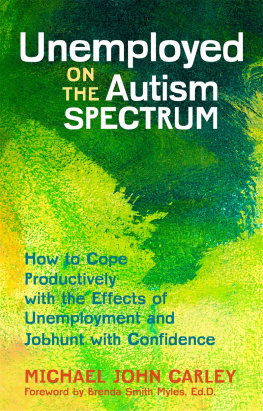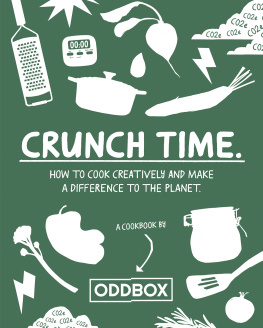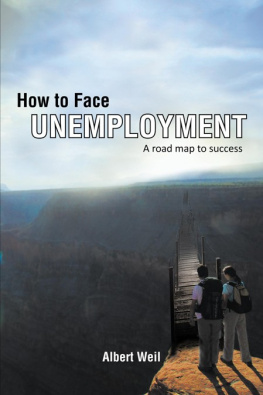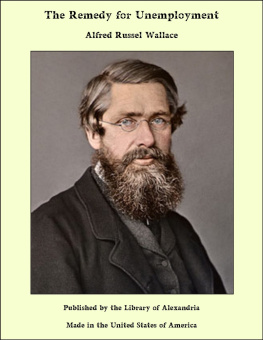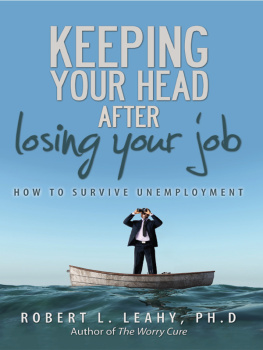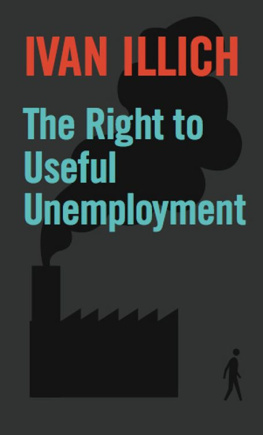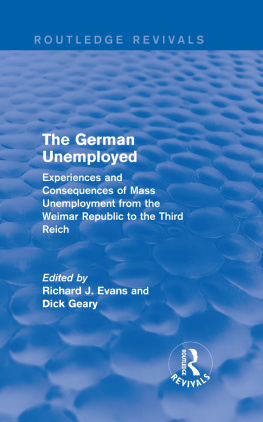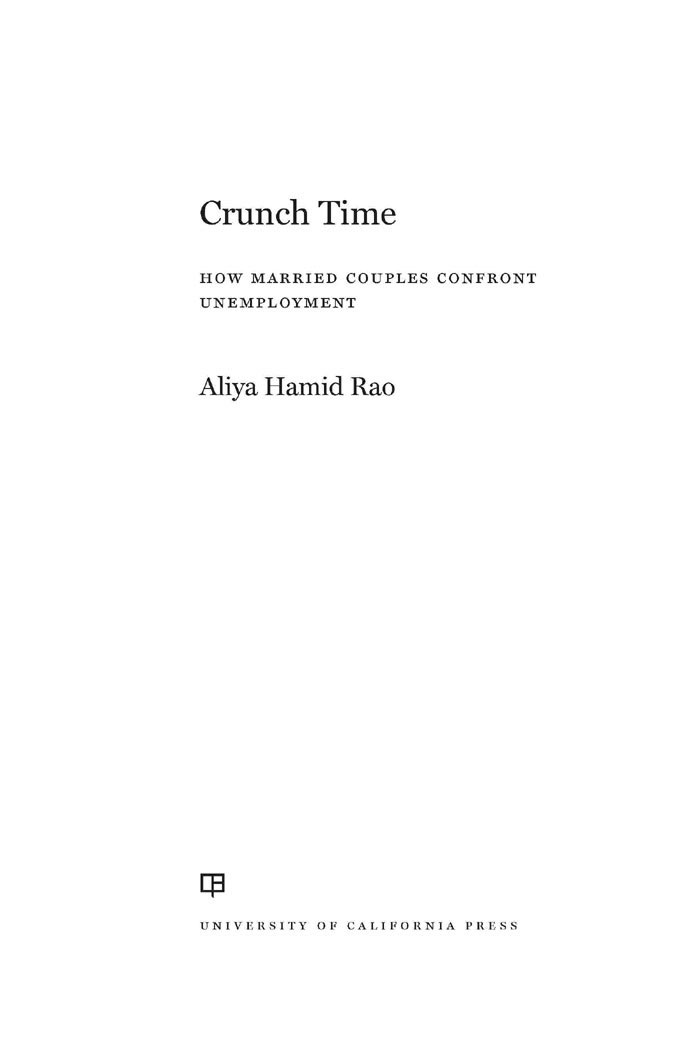PRAISE FOR Crunch Time
Crunch Time is an eye-opening book about the ways in which economic insecurity reverberates into family life. In gripping detail, Rao illuminates family dynamics of unemployed professional women and men. Her book shows the surprising ways that gender inequality persists. Highly recommended!
Annette Lareau, author of Unequal Childhoods
In this deeply researched book, Rao takes us into the lives of professional couples dealing with unemployment and finds that even among these modern-day couples, traditional gender norms about breadwinning endure. A husbands unemployment is experienced as a big problem that needs to be rectified, while a wifes unemployment is experienced as an opportunity for her to spend more time at homeeven when she is the primary earner. Raos insightful examination reveals that when job loss strikes, gender inequalities are reinforced by couples old-school responses to a new-economy problem.
Marianne Cooper, Stanford University, author of Cut Adrift: Families in Insecure Times
Cruch Time is masterful. I picked up the book and could not put it down! A tale of two unemployments, CrunchTime details how unemployed men and women adopt an ideal job-seeker norm in divergently gendered ways in the face of economic precarity. A heartwrenching, hopeful, and captivating book, this is a must-read.
Kimberly Kay Hoang, University of Chicago, and author of Dealing in Desire
Aliya Raos meticulously designed study takes us into the deeply uncertain lives of the affluent as they experience unemployment. Raos attention to the families profiled in this book is exacting and multifaceted, resisting any platitudes about privilege, unemployment, and especially gender. She illuminates how couples responses to unemployment are shaped by entrenched understandings of what husbands and wives ought to do. She offers compelling explanations for variations in these gendered responses, expertly linking her findings to broader patterns of social inequalities.
Shelley Correll, Stanford University, Director of Stanford VMWare Womens Leadership Innovation Lab
Dual-career marriages signal increasing gender equality, but what happens when one member of the couple becomes unemployed? Aliya Raos surprising research finds that they revert to outdated gender norms. Through intimate portraits of unemployed professionals, Rao deftly exposes how society pushes men and women into traditional gender roles.
Christine Williams, University of Texas at Austin
This is a beautifully written, well-organized, and meticulously researched book that breaks new ground.
Ofer Sharone, University of Massachusetts Amherst, and author of Flawed System/Flawed Self
Raos ideas are fresh, and an examination of unemployment and the different strategies between men and women and how their spouses react is welcome in the field.
Rosanna Hertz, Wellesley College
Crunch Time
Crunch Time
HOW MARRIED COUPLES CONFRONT UNEMPLOYMENT
Aliya Hamid Rao
UNIVERSITY OF CALIFORNIA PRESS
University of California Press
Oakland, California
2020 by Aliya Hamid Rao
Library of Congress Cataloging-in-Publication Data
Names: Rao, Aliya Hamid, author.
Title: Crunch time : how married couples confront unlemployment / Aliya Hamid Rao.
Description: Oakland, California : University of California Press, [2020] | Includes bibliographical references and index.
Identifiers: LCCN 2019059486 (print) | LCCN 2019059487 (ebook) | ISBN 9780520298606 (cloth) | ISBN 9780520298613 (paperback) | ISBN 9780520970670 (ebook)
Subjects: LCSH: UnemployedSex differences. | UnemployedFamily relationshipsSocial aspects. | Married peopleEmploymentPsychological aspects. | Upper class familiesEconomic aspects.
Classification: LCC HD5708 .R37 2020 (print) | LCC HD5708 (ebook) | DDC 331.13/708655dc23
LC record available at https://lccn.loc.gov/2019059486
LC ebook record available at https://lccn.loc.gov/2019059487
29 28 27 26 25 24 23 22 21 20
10 9 8 7 6 5 4 3 2 1
Contents
PART I GENDER AND SPACE DURING UNEMPLOYMENT
1. Men at Home
2. Idealizing the Home and Spurning the Workplace?
PART II GENDERED TIME IN JOB SEARCHING
3. Dinner Table Diaries
4. Can Women Be Ideal Job-Seekers?
PART III GENDERED TIME IN HOUSEWORK
5. Why Dont Unemployed Men Do More Housework?
6. Why Do Unemployed Women Do Even More Housework?
Tables
1. The Ideal Job-Seeker Norm
2. Sample
3. Descriptive Data on Unemployed Men, Unemployed Women, and Their Families
4. Where Are They Now? Employment Status at First and Second Interview
5. Sample Recruitment Sites
Acknowledgments
A tremendous achievement of neoliberalism is how people continue to feel morally deficient after encountering pervasive economic events, such as layoffs and downsizings that are now built into organizational logics. This uncertainty at work occurs alongside a glorification of employmentthe belief that what you do is who you are. So, unemployment is a difficult, even if expected, feature of contemporary life. It catalyzes individuals to question themselves, their professional worth, and even their morality as people. It can be hard to talk about. For this reason, and for many others, I am immensely grateful to the unemployed women and men and their spouses who chose to share their experiences of this often dispiriting time with me. My sincerest thanks especially to the Smith, Bach, Jansson, and Mason (all pseudonyms) families who let me into their homes and allowed me to see how unemployment shaped the rhythm of their daily lives. The magnanimity with which they shared some of these most intimate, emotional, and heart-wrenching experiences continues to astound me.
The material realm is enormously powerful in shaping intellectual life. Virginia Woolf recognized this obvious fact when she stated that a woman must have money and a room of her own if she is to write. While Woolf referred to fiction, nonfiction, too, is not easily written without either of these two things. This book would not have been possible without the extraordinary financial support and intellectual feedback that I have received at three institutions: the University of Pennsylvania, Stanford University, and Singapore Management University (SMU). Ive been privileged to be a part of these institutions in the process from the inception of this study to the completion of this book.
As a graduate student at Penn, I had the great fortune to have Annette Lareau as my intellectual mentor and dissertation chair. Annettes insightful and meticulous feedback has pushed me to think deeply about how to contribute to broader sociological questions and to do so with appropriateand richdata. Her support has been unparalleled as this study has developed from a dissertation and into a first book. Thank you for the many, many discussions over countless cups of tea at McNeil, in your home, and even over Skype.
My other committee members at PennKristen Harknett, Robin Leidner, and Frank Furstenberghave been instrumental to both my own intellectual development and that of this study. They provided indispensable feedback through crucial steps of my graduate school journey. I am so very grateful for the hours you have spent reading my writing and discussing my argument with me. I am always awed by Kristen Harknetts quiet, unwavering encouragement. In conversations from Philadelphia to California she has been a fantastic mentor, and I can only hope to emulate her finely honed balance of gentle encouragement and insightful critique. I also benefitted tremendously from conversations with other faculty members at Penn, specifically Melissa Wilde, Randall Collins, Jerry Jacobs, and Demie Kurz. The office staff at Penn went above and beyond to solve tricky and at times seemingly intractable bureaucratic questions with efficient aplomb. Thanks to Aline Rowens, Nancy Bolinski, Marcus Wright and Kathleen Paone, who have answered innumerable questions over the years. Many, many thanks to Audra Rodgers in particular.


